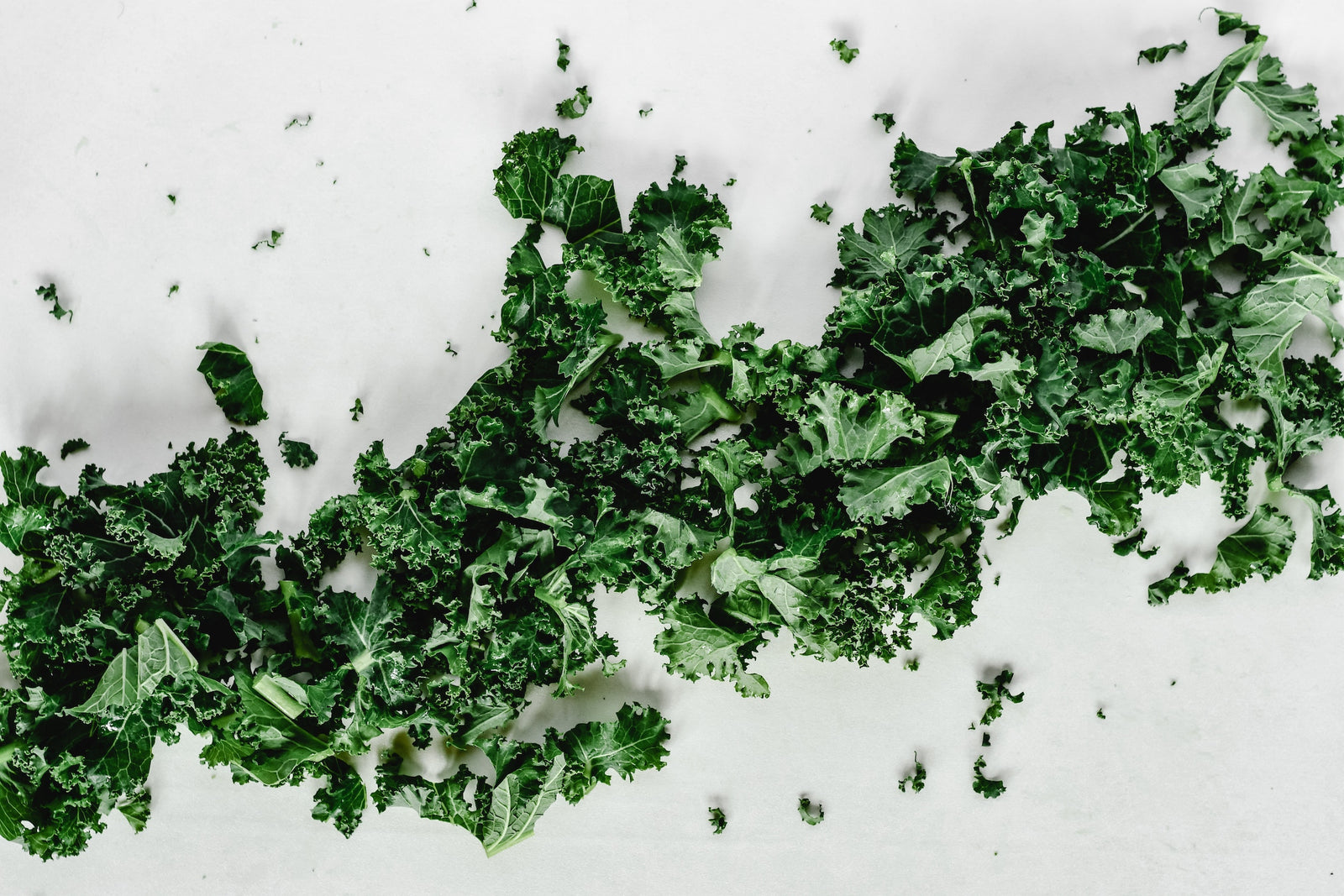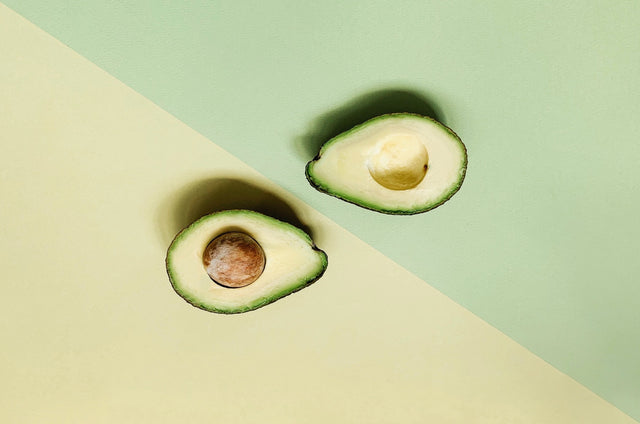Kale is one of the most nutrient dense and healthy foods on the planet. With just one cup per day, you can get crucial vitamins and nutrients like vitamins C, K, E as well as powerful plant compounds proven to promote better heart health and overall health and wellness. We’re going to talk about the properties and health benefits of kale and why you’re going to want to add this leafy green to your diet.
What Is Kale
Kale is called a cruciferous vegetable and part of the brassica family. Some consider Kale to be a “superfood” rich in nutrients including several carotenoids (beta-carotene, lutein zeaxanthin) as well as vitamin C,E,K, folate and a host of minerals. Kale contains powerful plant compounds called polyphenols which contain antioxidant properties, eradicating free radicals damage which has been linked to chronic disease states. In addition, cruciferous vegetables contain a group of substances called glucosinolates, which are sulfur-containing chemicals. These chemicals are responsible for the pungent aroma and bitter flavor of cruciferous vegetables, but also some of the most profound benefits of kale.
During digestion cruciferous vegetables are broken down into several bioactive compounds, such as indoles, nitriles, thiocyanates, and isothiocyanates. Indole-3-carbinol (an indole) is converted into diindolylmethane more commonly known as DIM, which has been shown to have anti-cancer effects and maintain hormone balance.
Kale Nutrition
Nutritionally kale is rich in vitamins and minerals, when eaten raw. However, when kale is cooked, is does lose a significant amount of nutritional value. One 100g serving of raw kale contains
Calories 43
Carbohydrates 4.42g
Protein 2.92g
Calcium 245 mg
Iron 1.6mg
Magnesium 32.7mg
Phosphorus 55mg
Potassium 348mg
Vitamin C 94.3mg
Vitamin K 390 ug
5 Kale Health Benefits
Kale Promotes Better Heart Health
Kale has powerful heart-protective benefits, improving cholesterol levels. A study published in the journal of Biomedical Environmental Science found that drinking kale juice every day for for 12 weeks increased HDL “good” cholesterol by 27% and lowered LDL levels “bad” cholesterol by 10%, while also improving antioxidant status [R]. A review published in the journal Nutrients compared the health benefits of different vegetables. Kale was classified with other cruciferous vegetables, such as broccoli, and cauliflower, reporting that this category of vegetables has the greatest and most profound impact on cardiovascular health [R].
Kale also contains robust amount of Vitamin K. Vitamin K activates a protein that helps prevent calcium from depositing in your arteries. Calcium deposits contribute to the development of plaque, which is directly related to heart disease [R].
Kale Could Reduce The Risk Of Cancer
Kale is extremely nutrient-dense and contains plant compounds that have been shown to have protective effects against cancer. Two of those plant compounds is sulforaphane, and indole-3-carbonol. Kale is also abundant in Vitamin C, as well as carotenoids, which can inhibit formation of carcinogens. Numerous studies have shown a clear and positive correlation between cruciferous vegetables and cancer prevention, due to their bioactive compounds [R].
Kale May Improve Bone Health
Kale is one of the best sources of Vitamin K with over 800% of your daily value in a 100g serving. Kale contains K1 which is different than K2. Vitamin K is important for adequate blood clotting in addition to bone health, with vitamin K deficiency being linked to osteoporosis. Several observational studies have also linked low levels of vitamin K, with a higher risk of bone fractures [R]. Vitamin K however is a fat-soluble vitamin, meaning that it in order to be optimally absorbed, it needs to be eaten with dietary fat.
Kale Has A Ton Of Vitamin C
Vitamin C also known as ascorbic acid, is necessary in the development and growth of body tissue and is involved in many biological functions. Vitamin C is a powerful antioxidant that can strengthen your immune system and your body’s natural defenses. Studies show that by consuming more vitamin C you can naturally increase antioxidants levels to help protect against chronic inflammation.
Kale May Benefit Eye Health
Kale contains powerful plant compounds called carotenoids, specifically beta-carotene, lutein, and zeaxanthin. Lutein and zeaxanthin, are known as yellow carotenoids, and are concentrated in the macula, the central part of your retina, which is a layer of light-sensitive cells on the back wall of your eye, boasting eye protective properties.
Kale Benefits: Takeaway
Kale is packed with powerful antioxidants, vitamins, nutrients, and boasts a load of amazing health benefits. Adding Kale to your daily diet, can help improve cholesterol levels, promoting better heart health, reduce inflammation, and help you meet your dietary intake of folate, vitamin c, and vitamin k.
Need Help With Optimizing Your Diet And Nutrition Plan To Finally Get The Results You've Been Waiting For?
SWOLVERINE IS AN ENDURANCE ATHLETE AND ACTIVE LIFESTYLE BRAND. MADE FOR THE ELITE ATHLETE, AND THE STRONG-WILLED OUR PRODUCTS WERE DESIGNED TO FUEL YOUR ATHLETIC PERFORMANCE. WE PERFORM WHEN YOU PERFORM.
We believe that everyone can optimize not only their athletic performance but their human potential. The way we believe we can optimize performance is through transparency, clinically effective doses, and clinically proven ingredients with evidence-based outcomes. We provide the nutrients you need to power your active lifestyle.
References
Blekkenhorst LC, Sim M, Bondonno CP, et al. Cardiovascular health benefits of specific vegetable types: a narrative review. Nutrients. 2018;10(5). doi:10.3390/nu10050595
Murillo G, Mehta RG. Cruciferous vegetables and cancer prevention. Nutr Cancer. 2001;41(1-2):17-28. doi: 10.1080/01635581.2001.9680607. PMID: 12094621.
Hamidi MS, Gajic-Veljanoski O, Cheung AM. Vitamin K and bone health. J Clin Densitom. 2013 Oct-Dec;16(4):409-13. doi: 10.1016/j.jocd.2013.08.017. Epub 2013 Oct 3. PMID: 24090644.
Shea MK, O'Donnell CJ, Hoffmann U, Dallal GE, Dawson-Hughes B, Ordovas JM, Price PA, Williamson MK, Booth SL. Vitamin K supplementation and progression of coronary artery calcium in older men and women. Am J Clin Nutr. 2009 Jun;89(6):1799-807. doi: 10.3945/ajcn.2008.27338. Epub 2009 Apr 22. PMID: 19386744; PMCID: PMC2682995.
Find similar articles:
Nutrition













